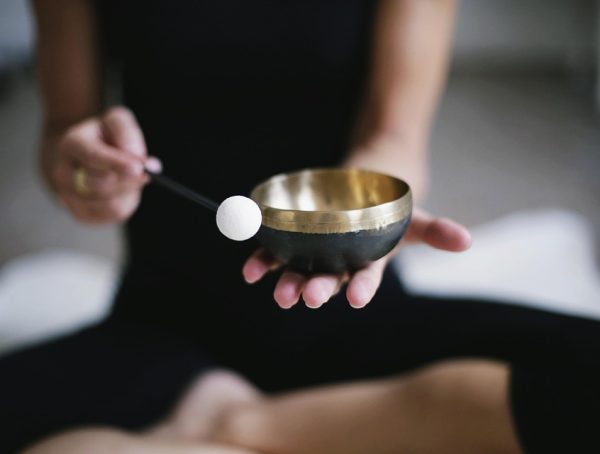The Science Behind Meditation: Improving Mental Health Naturally
In today’s fast-paced world, the pursuit of mental wellness has become paramount. Thousands are exploring natural methods to manage stress, anxiety, and depression. One such method that has gained significant traction in recent years is meditation. What was once considered a spiritual or religious practice has become widely recognized for its scientific benefits. Let’s delve into the science behind meditation and how it can improve mental health.
Understanding Meditation
Meditation is an age-old practice rooted in various cultural and spiritual traditions. Its primary objective is to reach a state of mindfulness, where individuals cultivate awareness of their thoughts, feelings, and surroundings. In its essence, meditation encourages mental clarity and emotional stability.
There are numerous forms of meditation, including mindfulness meditation, transcendental meditation, loving-kindness meditation, and guided meditation. Each has its unique techniques and benefits, but all share the common goal of promoting relaxation and mental well-being.
The Science of Meditation and Mental Health
Recent studies in neuroscience and psychology have illuminated the positive impact of meditation on mental health. Here’s how it works:
-
Stress Reduction: One of the most notable benefits of meditation is its ability to lower stress levels. Research has shown that regular meditation practice can significantly reduce cortisol, the hormone responsible for stress. A study published in the journal Health Psychology found that participants who engaged in mindfulness meditation reported greater reductions in stress compared to those who did not meditate.
-
Improved Emotional Regulation: Meditation enhances the brain’s ability to regulate emotions. Neuroimaging studies show that individuals who meditate regularly exhibit increased activity in the prefrontal cortex, the area of the brain responsible for decision-making and emotional regulation.
-
Anxiety and Depression Management: Multiple studies indicate that meditation can help alleviate symptoms of anxiety and depression. For example, a meta-analysis published in JAMA Internal Medicine found that mindfulness meditation programs significantly improved anxiety, depression, and pain.
-
Enhanced Focus and Concentration: Meditation not only promotes relaxation but also improves cognitive function. Regular practitioners of meditation often report enhanced attention and concentration. A study in Cognitive, Affective, & Behavioral Neuroscience demonstrated that even brief meditation training could enhance attention span and cognitive flexibility.
- Better Sleep Quality: Sleep disturbances are often linked to mental health issues. However, studies suggest that mindfulness meditation can improve sleep quality, making it easier to fall asleep and stay asleep. One study in JAMA Internal Medicine found that participants who practiced mindfulness meditation experienced improved sleep compared to a control group.
Action Steps for Incorporating Meditation into Your Life
Getting started with meditation doesn’t have to be daunting. Here are some practical steps you can take to make meditation a part of your daily routine:
-
Start Small: If you’re new to meditation, begin with just five minutes a day. Gradually increase the time as you become more comfortable with the practice.
-
Choose a Comfortable Space: Find a quiet, comfortable place where you won’t be disturbed. This could be a corner of your room, a park bench, or any place where you feel at ease.
-
Use Guided Meditations: Consider using apps or online resources that offer guided meditations. These can help you stay focused and provide structure as you develop your practice. Some popular options include Headspace, Calm, and Insight Timer.
-
Focus on Your Breath: A simple yet effective technique is to focus on your breath. Pay attention to the sensation of your breath entering and leaving your body. If your mind begins to wander, gently bring your focus back to your breathing.
-
Set a Regular Schedule: Just like any other commitment, consistency is key to building a meditation practice. Set aside time each day to meditate, whether it’s in the morning, during your lunch break, or before bed.
-
Join a Community: If you prefer group activities, consider joining a meditation class or group. Connecting with others can help keep you motivated and provide insights into different techniques.
- Be Patient with Yourself: Remember that meditation is a practice, not a performance. It’s normal to have wandering thoughts, especially when you’re starting. The key is to approach each session with patience and kindness toward yourself.
Conclusion
The science behind meditation is clear: it holds numerous benefits for mental health and overall well-being. The ability to reduce stress, manage anxiety and depression, improve emotional regulation, enhance cognitive function, and promote better sleep quality reflects the powerful impact of this age-old practice.
Incorporating meditation into your daily routine can be a natural and effective way to cultivate a sense of peace and improve your mental well-being. So take a moment today to pause, breathe, and embrace the present.
As the renowned spiritual teacher Thich Nhat Hanh once said, "Feelings come and go like clouds in a windy sky. Conscious breathing is my anchor."
If you found this article helpful and inspiring, follow Kevin on Instagram (@KSteineman) for more insights on health, wellness, and leading a mindful life!
You might also like
More from Meditation
The Role of Mantras in Transcendental Meditation: A Deep Dive
The Role of Mantras in Transcendental Meditation: A Deep Dive Transcendental Meditation (TM) has garnered a significant following across the globe, …
Understanding the 7 Types of Meditation for Beginners
Understanding the 7 Types of Meditation for Beginners: A Path to Inner Peace Meditation has become a popular practice in recent …
The Ultimate Guide to the Three Types of Meditation
The Ultimate Guide to the Three Types of Meditation Meditation is more than just a tool for relaxation; it’s a thriving …


































